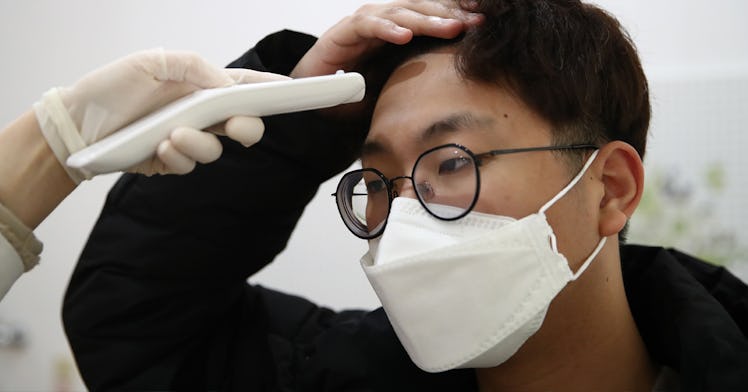Symptoms of Coronavirus: What They Are and What They Aren’t
Cut through the confusion with this crucial, reliable information.

The outbreak of a novel coronavirus in China has spread to more 20,000 people in more than two dozen countries in Asia, North America, Europe, and Australia. There are a few trusted sources of information about the virus like the Centers for Disease Control and the World Health Information, but there’s also lots of misinformation online, including pernicious attacks on people of Asian descent.
We’ve sourced answers to some of the most common questions about this coronavirus from these legitimate sources, so you can be sure you’re getting the information you need to keep your family safe.
What are the symptoms of 2019-nCoV?
According to the CDC, the symptoms of 2019-nCoV can include:
- Fever
- Cough
- Shortness of breath
The presence and severity of these symptoms vary greatly, with some infected people having few, minor symptoms while others fall severely ill.
How long does it take for 2019-nCoV symptoms to appear?
The CDC “believes at this time” that people can start to manifest symptoms anywhere from two days to two weeks after exposure. They’re basing this conclusion on the incubation period of the MERS virus, a biologically similar but distinct coronavirus, so it’s possible that this timeframe is not 100 percent reliable.
How is 2019-nCoV transmitted?
The 2019-nCoV has been found to spread person-to-person transmission “thought to occur mainly via respiratory droplets produced when an infected person coughs or sneezes” among close contacts, people within about six feet. People who aren’t displaying symptoms can still transmit the virus.
The CDC does not currently know if it’s possible to transmit the virus by touching a surface with 2019-nCoV on it and then touching one’s eyes, nose, or mouth.
What should you do if you’re exhibiting symptoms of 2019-nCoV?
If you were in China in the last 14 days or you’ve been in close contact with someone who has or is being evaluated for 2019-nCoV and you have any of the symptoms you should seek medical attention immediately.
Call the doctor’s office or emergency room, explain the situation, and follow their recommendations. It’s likely they will want to take steps to ensure that you don’t come into contact with other patients. Additionally, the CDC recommends that you:
- Stay home except to get medical care and when you are home don’t commingle with other people, pets, or other animals
- Cover your coughs and sneezes with a tissue or your sleeve
- Wear a facemask whenever you’re in the same room with other people
- Wash your hands often and thoroughly, for at least 20 seconds with soap and water or, if they aren’t available, a hand sanitizer that’s at least 60 percent alcohol
- Avoid sharing household items (e.g. dishes, bedding) and thoroughly wash the items you do use
- Monitor your symptoms and get medical care if your symptoms worsen
How can you prevent 2019-nCoV infection?
There is no vaccine for 2019-nCoV, so the things to do are the things you should already be doing to prevent the spread of infectious disease, particularly during cold and flu season.
You should also follow all travel advisories, including the current Level 3 warning to avoid nonessential travel to China.
This article was originally published on